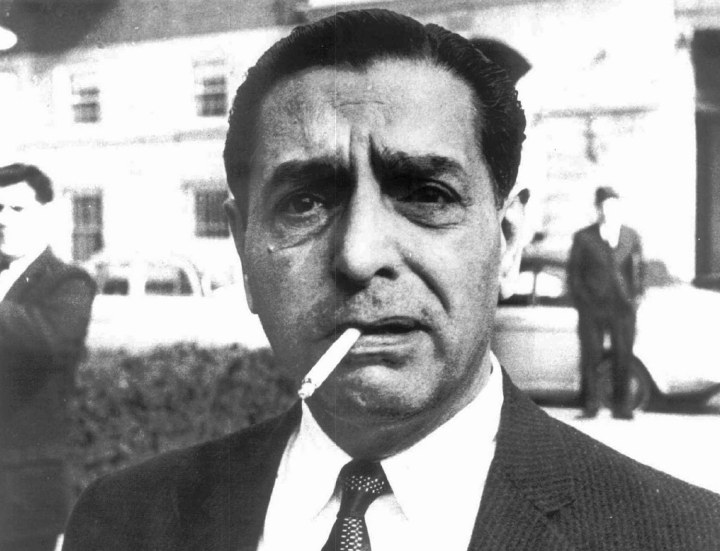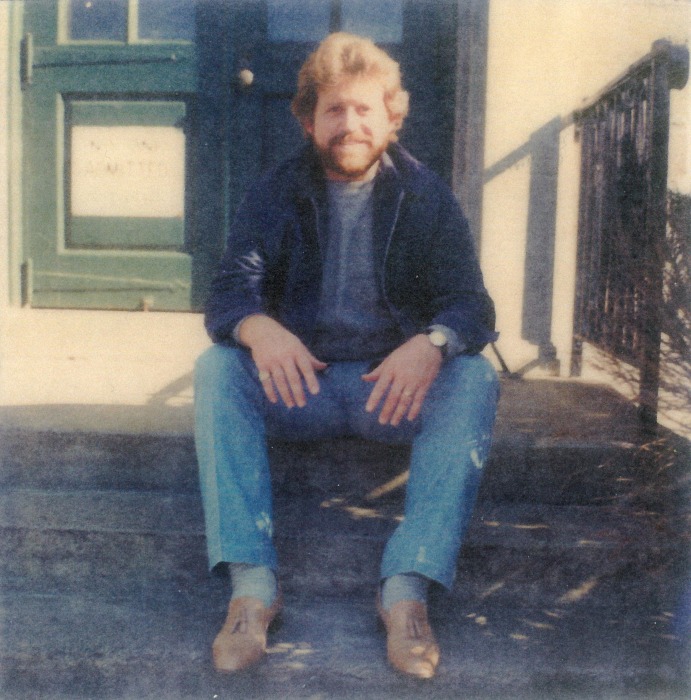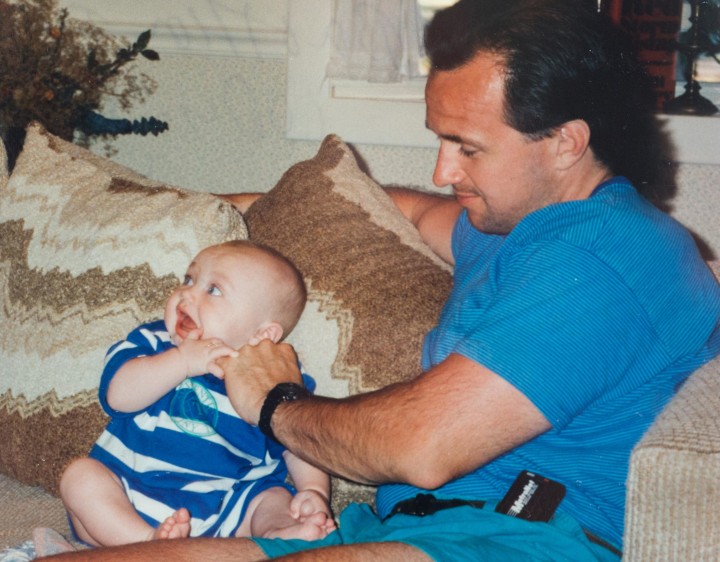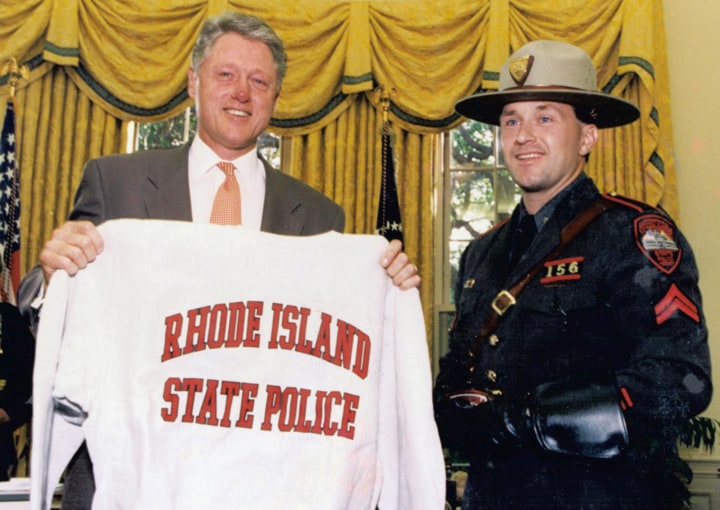Head of Rhode Island state police spent six years undercover taking down the Patriarca crime family
“Steve Foley” was living a lie -– one that would last six long and dangerous years.
It
all started on Sept. 27, 1994, outside a Providence, R.I., courthouse,
when he recognized a hit man for the most powerful crime family in New
England.
He walked up, said hello and told the killer he had remembered him from prison.
But
“Foley” wasn’t the profane and menacing long-haired bookie and drug
dealer he professed to be. He was Steven O’Donnell, an undercover state
police officer trying to get inside one of the Mafia’s most feared
families. He knew the job was dangerous and that the slightest mistake
was likely to get him killed.
“Everybody
has fear,” he says now of the stretch in the mid-1990s that he spent
working inside the Patriarca Mafia family that ran New England, worried
that he’d be exposed or that his wife and family would be at risk. “…
Only to stay on top of your game, you have to be in full control of that
fear.”
In part because of that
healthy sense of apprehension, O’Donnell’s dangerous assignment to
infiltrate the powerful crime family founded by Raymond Patriarca Sr. in
the 1950s had a happy ending for everyone but the mobsters. His
testimony was instrumental in convicting “hundreds” of criminals and
putting them behind bars.

It also served as an
effective, if unlikely, crash course that prepared him for his current
position: head of the Rhode Island State Police, the top public safety
job in the state.
“Because of (my)
undercover work, I am non-reactionary,” said the 53-year-old O’Donnell,
in his first detailed interview about the case. “… You can tell me
something bad happened and I’m not going to react to it. I’ll get all
the facts first.”
It took a guy who grew up around the mob to take down the mob.
O’Donnell
is from Providence, and as a boy lived across the street from a woman
who was dating “a made member of the Patriarca crime family,” a feared
outfit run by “one of the most powerful dons in the history of America,
never mind New England,” he says.
He was fascinated by the crooks he encountered, but they also fueled a sense of moral indignation.
“I was always kinda frustrated that they can do what they do with … impunity,” he said.
That
led O’Donnell to a career in law enforcement, first as a guard at Rhode
Island’s Adult Correctional Institute, starting in 1983, and later as a
state police officer.
Prison is a lot different inside than what people perceive on the outside.
O’Donnell, who guarded
the “wise guys” -- or mobsters – in the prison’s maximum security wing,
says that monitoring prisoners was the equivalent of earning a graduate
degree.
“You can't beat the
experience that you have to talk to people, you have to listen to 'em. …
Prison is a lot different inside than what people perceive on the
outside,” he said.
It was while
working in the prison in the ‘80s that he first encountered Harold
Tillinghast, a hit man doing time for murder who was in charge of fixing
TV sets and grilling hot dogs for his fellow prisoners.
Guard
and inmate had little interaction at that time, but a chance encounter
with Tillinghast years later,when O’Donnell was working as a Rhode
Island trooper, dramatically changed his career’s trajectory.
O’Donnell
was assigned at the time to the agency’s Intelligence Unit, which had
made tackling organized crime its top priority. It wasn’t easy, but he
persuaded officials at the regimented agency to let him grow a beard and
wear his hair long so that he could more easily mingle with the crooks
he was targeting. He also had an array of false documentation, including
driver’s licenses and student IDs, that he carried with him, just in
case an opportunity presented itself.

That moment arrived on Sept. 27, 1994, when he recognized Tillinghast outside a Providence courthouse.
After
sizing up the situation for about five seconds, he introduced himself
to Tillinghast as Steve Foley and said they had done time together in
prison. Tillinghast, who was out on probation, didn’t remember
O’Donnell, but the undercover cop’s story won him over.
“I
convinced him that I was an inmate, and I knew the walk, I knew the
talk,” O’Donnell said. “… I knew what he did for work, what block means,
where you work, what, how you eat.”
O’Donnell
built a friendship with Tillinghast over the following months before
playing his next card, telling the mobster that he was a bookie who
needed to “lay off” some bets that had him financially exposed. He also
said he was looking to pay for “protection” to the local mob to avoid
stepping on any toes, but didn’t know who to talk to.
Tillinghast
was happy to help and introduced him to another criminal, Joseph Lema,
an oddsmaker who also collected a “fee” so that other local crooks
wouldn’t bother his new friend. When O’Donnell received threats anyway,
Lema picked up the phone and called Gerald Tillinghast, Harold’s
brother.
Gerry Tillinghast, the
muscle behind one of the Patriarca family’s crews, was still in prison
for murder – a killing that he and his brother were convicted of
carrying out. But he was continuing to run his gang’s rackets from
behind bars. Tillinghast had a simple response for Lema: Tell Steve to
tell the other gang, “Hey, he’s mine. Leave him alone.”
What the two men didn’t know is that the phone call, along with many others, was being recorded. NBC News has obtained audio of one of the phone calls, the first time it has been made public.
Posing as Steve Foley
was nerve-wracking, O’Donnell recalls, not just because he had to avoid
tipping off the mobsters. He was always worried that he would run into
someone who would recognize him as a cop and inadvertently blow his
cover.
“That happened a lot,
where I’d see people that I clearly recognized, that they know I’m a
state trooper,” he said. “….Rhode Island’s not a big place.”'
He
also feared what might happen to his wife, Holly, and their three young
sons -- Conor, Cody and Brady – if he was exposed. He says he didn’t
tell his wife too much about what he was doing, but she had some idea of
what he was doing and supported him.

“I mean, obviously she
knows how I look, she sees me comin' and goin' in different cars and I
talk to her about it as best I can,” he said. “(But) she doesn't live in
the world that I live in, and I don't want her to. “
Despite
such hazards, O’Donnell continued to build a massive dossier of
evidence against the crooks, until authorities finally began to reel
them in, starting in 1990.
By the time he cut his
hair and returned to uniform in 1996, O’Donnell’s testimony had been
instrumental in putting hundreds of suspected mobsters behind bars and
led to the seizure of vehicles, drugs and hundreds of thousands of
dollars.
The busts, which gutted
the Patriarca family, earned O’Donnell honors and accolades that
extended to the White House, where he met former President Bill Clinton
and regaled him with stories of his days playing lacrosse in college.

His moxie even earned the respect of some of the mob men he took down.
In
a rare interview from his lawyer's Rhode Island office, where he is
serving probation, Gerry Tillinghast told NBC News that he bears no ill
will toward his old adversary.
“Lemme
say this,” he said, “my personal opinion is law enforcement, their job
is to take people that commit crimes -- no matter what level -- off the
street. That's their job. A criminal, no matter what level, his job is
then not to let that happen.”
As for O’Donnell’s ruse
that sent he and his brother to jail, Tillinghast said, “He did it
pretty good. I gotta give it to him, even though I hate to say it.”
O’Donnell says there
are no hard feelings on his part, either. O’Donnell said law enforcement
“respect(s) them in the sense that when they get arrested, it's not
personal. It's part of the system that we're in. I think it's important
it happens that way.”
There are
few signs of O’Donnell’s long undercover assignment visible in the
wood-paneled office reserved for the colonel and superintendent of the
Rhode Island State Police, where he oversees more than 600 state
troopers and civilian employees.
The
fake IDs and wiretap cassettes have long-since been filed away. His
low-slung L-shaped desk is neatly stacked with paperwork. There are
pictures of his kids playing lacrosse on a team he coached to a state
championship. There are no photos of the colonel during his days as a
long-haired, swearing, bookmaking, undercover detective in the mob.
For
those who know his story, there are a few mementos that hold clues to
his former occupation: There are pictures of him with President Clinton.
And there’s a photo of O’Donnell posing with legendary FBI undercover
detective Joe Pistone, aka “Donnie Brasco,” who infiltrated the Bonanno
and Colombo Mafia families in the late ‘70s and early ‘80s.
The most obvious reference may be the fake white street sign near the left corner of the room. It reads “Mafia Parking Only.”
http://www.nbcnews.com/news/investigations/taking-down-mob-undercover-cops-six-years-risky-business-n41556




0 comments:
Post a Comment